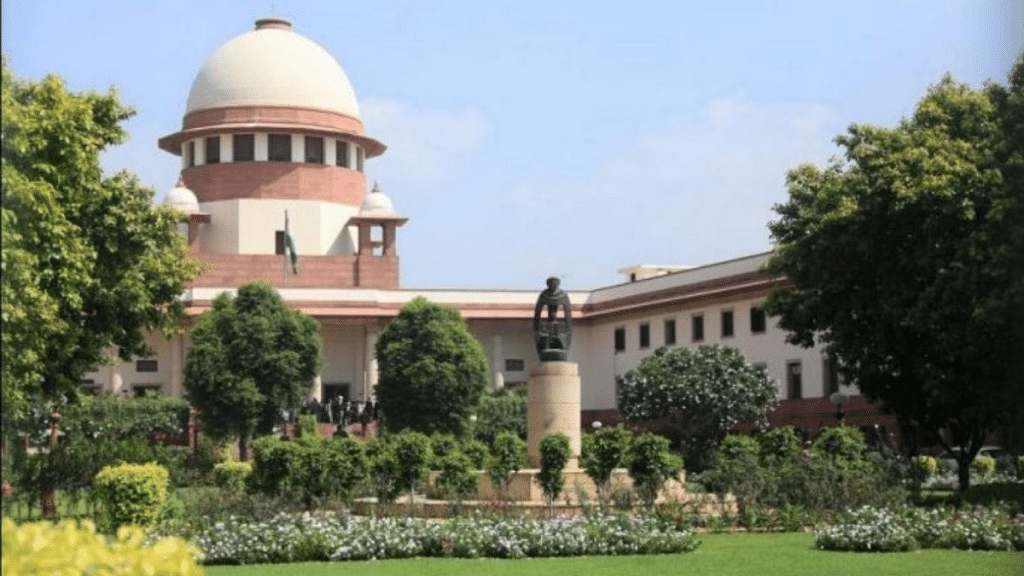New Delhi: Justice D.Y. Chandrachud-led Supreme Court’s e-committee has chosen five high courts — Bombay, Delhi, Telangana, Madhya Pradesh and Allahabad — to start the digitisation of case documents or legacy records across all courts, two panel members told ThePrint on condition of anonymity.
The court has now issued the standard operating procedure for the courts to follow in a bid to keep uniformity. Two of these courts were earlier digitising the data but there was no interoperability in that process.
The latest move is part of the top court’s phase-3 project that aims to adopt technology to create a reliable source of digital records, and enable electronic exchange of data between judicial entities for quicker disposal of cases, removing geographical boundaries in the judiciary.
Under the digitisation initiative that was started in 2005, the first phase saw infrastructure being set up. The next phase saw the setting up of more citizen-centric digital processes, like e-filing.
Digitisation of judicial documents would enable the administrative process to move towards becoming “more environmentally sustainable” as it would minimise paper-based filing, and curtail physical movement of court records from one forum to another.
The latest step is in addition to the e-committee’s direction last month to all high courts, asking them to make it compulsory for government departments to file their cases electronically. The rule is set to kick in on 1 January 2022.
A member of the e-committee told ThePrint that digitisation of records must be accompanied with e-filing of cases.
“In the second phase of the e-courts project, the e-committee had introduced the system for digital filings. However, even then the preferred mode is physical filing of cases. If this goes on then in a few years again we may be staring at a huge number of documents for digitisation. This would frustrate the objective of digitisation of court records. Therefore, the two procedures — digitisation and e-filing — need to be carried out simultaneously,” the member explained.
Also read: Delhi HC Women Lawyers Forum calls out ‘misogyny of the bar’ in reaction to 1994 assault case
Project scale and operation
According to the e-committee’s estimates, nearly 3,100 crore documents will be digitised over the next five years, including all old and current records.
Up to 6 per cent of legacy documents have been digitised so far.
The Allahabad and Madhya Pradesh high courts had started the process. However, there was no uniformity in the way they were proceeding, prompting the panel to formulate an SOP for digitising the data, the member quoted above said.
“In the absence of uniformity, interoperability of documents between judicial forums becomes difficult. For example, when an appeal gets admitted for hearing in the high court or Supreme Court, the physical record is always called for from the lower court. If the documents run into volumes, summoning of records can delay the proceedings,” the member said.
“Digital records that are compatible to the system at each level will curtail such delays, since transfer of data would then be subject to click of a button,” added the member.
Also read: SC to hear plea to quash UAPA charges by Tripura police against 2 lawyers, journalist
Need for digitisation
A second member said the Covid pandemic has amplified the need to strengthen the digital capabilities in the justice delivery system.
Grabbing this unprecedented opportunity for change, the e-committee adopted the information and communication technology tools to ensure dispensation of justices in a “seamless manner”.
Digital infrastructure was upgraded under the e-courts project, making it possible for the judiciary to remain in operation even during the pandemic-induced lockdown.
More than two crore cases were registered between March 2020 and 21 October this year, while a little over 1.4 crore were disposed of by subordinate courts through video conferencing during the same period, according to e-committee data.
“The standardisation of all the aspects of digital preservation across all high courts and district courts will help in achieving greater interoperability between data repositories and benefit the judiciary in acceleration of overall justice delivery system,” the second member said.
The members said digitisation of court records will not just be an environment-friendly process, but also a cost-effective mechanism for litigants and lawyers. It will lead to an efficient court and case management and ensure the data of litigants remains secure.
“Digitisation of records will provide a safe backup to the data that can be retrieved at any point of time,” the second member said.
E-filing too
To ensure digitisation does not become obsolete, the e-committee is also mulling at the option of gradually moving to make e-filing a preferred mode for filing cases.
“Along with digitisation of court records, there is an urgent need for adoption of e-filing by all the stakeholders of the judicial system,” the second member explained.
For now, the committee has made e-filing compulsory for all government departments, both Centre and states.
“Government is one of the major litigants in court, therefore, the chairman suggested they adopt e-filing to serve the cause of digitisation. High courts have also been given a choice to consider making e-filing compulsory in some categories of matters like revenue, tax, arbitration, commercial disputes and any other category,” the member added.
For private litigants, the e-committee is likely to incentivise e-filing, such as giving preference for early hearing to those cases that are filed digitally and also bear the expenses of preparing physical copies, in case the judge hearing the case desires a hard copy of the petition.
The e-committee is also working on the privacy aspect and has constituted a high-powered committee to suggest measures to make sure the data is not compromised.
(Edited by Amit Upadhyaya)
Also read: SC pushes for nuanced approach on Char Dham project to balance defence, environmental concerns
